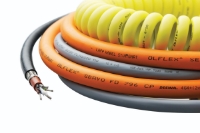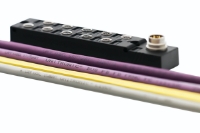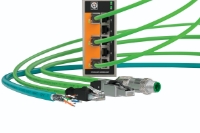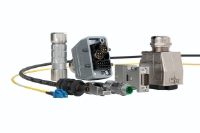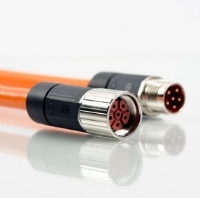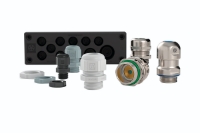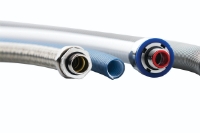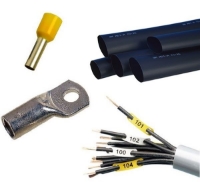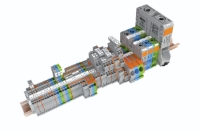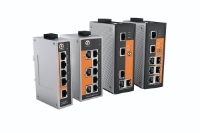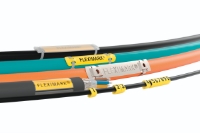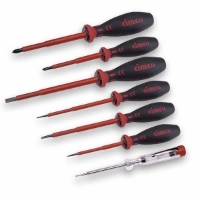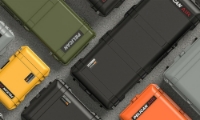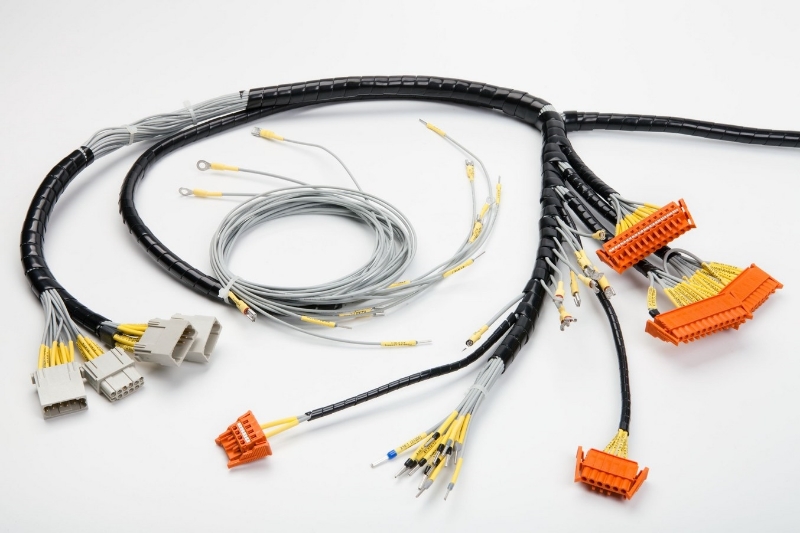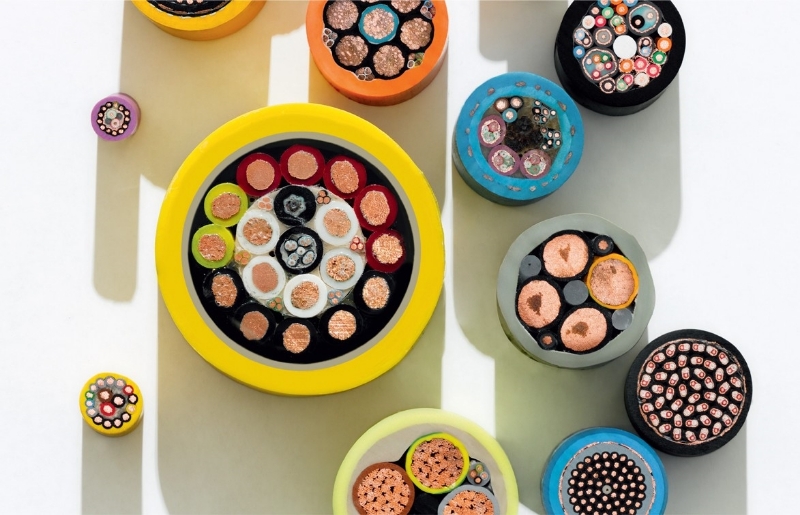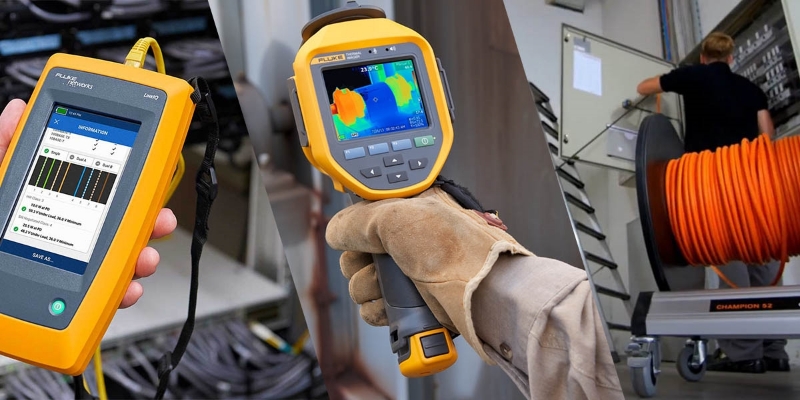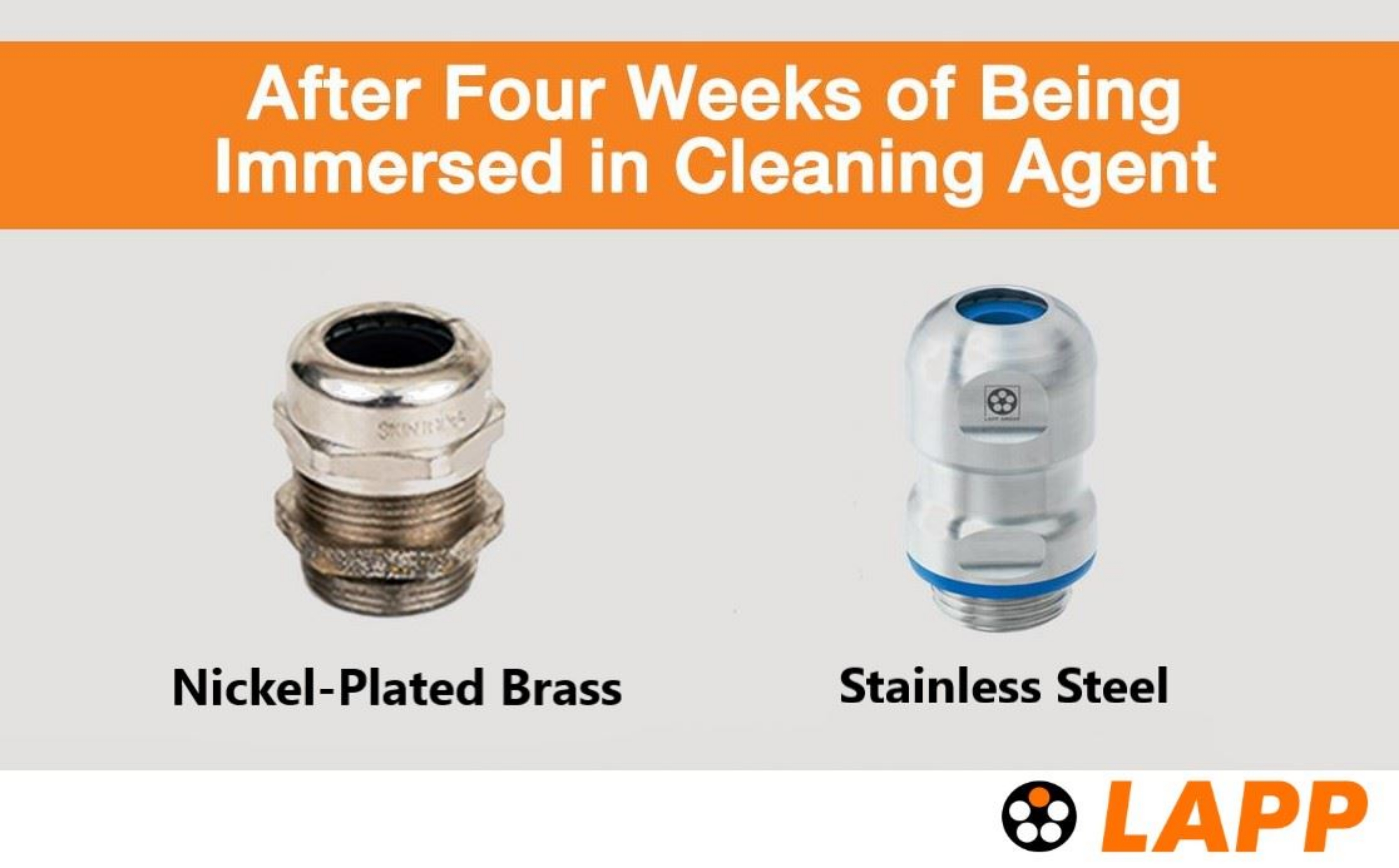CABLES AND PLUG CONNECTIONS HAVE TO WITHSTAND A GREAT DEAL, BUT THIS IS ESPECIALLY TRUE FOR THE FOOD AND BEVERAGE INDUSTRY, WHERE THE RIGHT CHOICE OF MATERIAL IS CRUCIAL.
When used in the Food and Beverage industry, products need to have resistance to biological influences such as microbes or fungi. In cheese factories, the bacteria that help the cheese ripen can corrode a conventional cable in a matter of months, leading to short circuits. Sheath materials made from special TPE, on the other hand, such as those used on LAPP’s ÖLFLEX® ROBUST cables, repel microbes and are easy to clean. The secret of the special thermoplastic elastomer that we use for this application is the smooth surface. This is achieved with a smart mixture of additives that fill microscopic gaps in the material that stay bonded in the plastic matrix even after heavy cleaning with a steam jet. The combination of strong substances with flexible polymer chains in between gives the mixture rubber-like properties while being as easy to process as thermoplastics. Some suppliers offer PUR cables for use in the Food and Beverage industry that offer extremely high mechanical strength. But PUR is hydrophilic, meaning that it attracts water. Special TPE, by contrast, is hydrophobic.
Rust-Free Connections with Stainless Steel
In the Food and Beverage industry, stainless steel is often essential. For example, LAPP offers the SKINTOP® INOX and the SKINTOP® HYGIENIC, While the SKINTOP® INOX tends to be used in the splash zone, the SKINTOP® HYGIENIC is also suitable for the product zone.
Stainless steel does not rust and there is no coating that could eventually flake off. But stainless steel isn’t always “just” stainless steel. Conventional V2A stainless steel is relatively low-cost, yet not as robust when it comes to chemical resistance. Stains can appear on the metal when it is immersed in substances containing chlorides. The Food and Beverage industry often uses hypochlorous acid that disintegrates into hydrochloric acid and kills organic substances. V2A stainless steel is not suitable here. V4A stainless steel offers a tougher alloy and is also used on expensive Swiss watches. It is extremely hard and withstands impacts and cleaning with coarse brushes.
Because stainless steel is harder than brass or standard steel, it is more difficult to process. This is especially true of V4A due to the alloy elements chromium, nickel, and molybdenum. If its surface is left untreated, V4A is rougher, leading to higher abrasion. Screws that have to withstand high forces across their thread would, therefore, be stuck. This is why LAPP gives our products made from V4A stainless steel, such as the EHEDG-certified SKINTOP® HYGIENIC, a special surface treatment that reduces abrasion and makes it easy to tighten and release the cable gland.
Stainless steel cannot be used everywhere. Take EPIC® rectangular connectors, for example. Stainless steel is unsuitable here because the metal is too hard to be processed. The connector would have to be milled from a complete block, which is expensive. That’s why we do things different with EPIC® ULTRA: the housing on this rectangular connector is made from corrosion-resistant, nickel-plated cast zinc.
Some companies use plastic housings that offer some resistance to acids and alkaline solutions. But plastic housings present the risk of low dimensional stability under mechanical or environmental influences. This can also lead to leaks, presenting a safety risk in the Food and Beverage industry. There is a risk of accidents and high follow-up costs for maintenance and service. Plastic is also unsuitable for applications in which electromagnetic compatibility is important. At the very least, they must be coated with metal to protect against interference. In practice, the results in terms of screening are often disappointing.
For questions on products for the Food and Beverage industry, please contact our sales team Contact Us.

